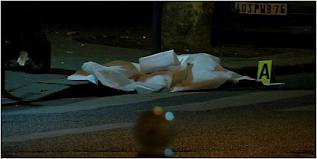
Myanmar opposition leader Aung San Suu Kyi met US foreign secretary HIllary Clinton.
Courtesy Reuters/Cameron
In the last two years Myanmar embarked on a series of reforms that promise to bring democracy and to open up the country. The Burmese people are in desperate need of involvement from the international community, but it is very likely that the first who will come in Myanmar will be the usual suspects. The country is blessed with natural resources, from oil to gems, not to mention its strategic position. In fact China already built port facilities for what the US called “the String of Pearls”. So it is very important to monitor the way investors are coming in Myanmar. In this article1 , civil society groups express their concern for the pace of development, too fast, with no attention for the humanitarian cost. Norway in particular is leading the way in funding peace-building in community affected area. The head of the Norwegian mission, Mr Petrie declared:
“The real concern [of activists and civil society groups] is the fact that the political process hasn’t started or has not been developed sufficiently far enough… On the part of government officials, there does seem to be a commitment to dialogue, but I think that some of the groups want a clearer idea of how that is going to proceed,”
According to Petrie, MPSI’s aim is to provide immediate support for the tentative ceasefires through humantiarian relief as well as building trust between the government and ethnic minority communities through development projects. MPSI is funding projects in Rakhine, Chin, Shan and Mon states.2
Petrie criticized severely the government in 2007 and was expelled. His words are an important warning. And everybody should listen, including Norway. Indeed as recently as a couple of weeks ago, Norwegian prime minister Stoltenberg, vowed to strength cooperation about energy, hydropower, oil and gas, fishery and communication3. This angle of the news came from the Chinese agency Xinhua. Other sources are of course highlighting the Norwegian effort in building peace and easing the tension amongst minorities.4
The lesson is that Norway is coming to Myanmar with a real concern for human rights and a real interest in the country’s natural resources. It is a good way to bring attention for the humanitarian aspect when dealing with economic development. You can call it best practices. Yet the Norwegian endeavour is far from being dispassionate. And we must remember this. Very often the West criticized action of other countries, in primis China, but they rarely debate the fact that we are talking of a competition, that the race for natural resources must be win. And one of your tool can be the humanitarian groups, but it is crucial to recognize that is a tool, for the real purpose of economic exploitation.
Otherwise the objectivity of the debate becomes very questionable. It is worth to mention that Petrie issued a very critical internal report against the UN agency in Sri Lanka during the end of the civil war in 2009. The UN intervention in Sri Lanka was a massive failure, missing the very purpose of its presence, namely protecting civilians. So it is more than welcomed the internal review of such misconduct. Yet, the fact that Petrie was appointed to lead the committee raised some question about conflict of interests5. Especially if you consider the past involvement of Norway in the Sri Lankan peace process. If you advocate for the principles, then be careful to follow your own preaching.














